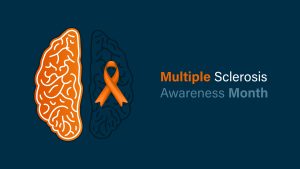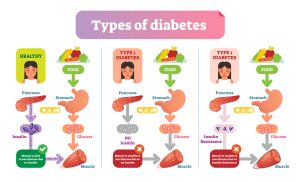 Hospice care or end-of-life care is specialized care that provides physical comfort alongside emotional, social, and spiritual support for people nearing the end of life.
Hospice care or end-of-life care is specialized care that provides physical comfort alongside emotional, social, and spiritual support for people nearing the end of life.
The grief we experience while coping with a dying loved one is different than what we experience after someone has died.
Here are some strategies to help both the patient and their loved ones during hospice care:
Understand your grief
Anticipatory grief is the deep sadness felt during the last days of life. It can be felt by both the patient and their loved ones.
Feeling grief while your loved one is still alive doesn’t mean you are abandoning your loved one or giving up. Instead, anticipatory grief can give you a chance to gain meaning and closure you might not have had otherwise.
You may feel like you are somewhere between holding on and letting go. Some people find this very painful. They may feel like they are betraying their loved one if they lean towards letting go. The truth is that it is possible to live with both holding on and letting go simultaneously. You don’t have to choose.
Let yourself feel and grieve
Everyone grieves and responds differently to news about a terminal diagnosis. Anticipatory grief can begin as soon as you’re told a loved one may die soon. You could also experience a delay as you process the information about your loved one’s diagnosis.
Let yourself feel the pain. This helps you to be honest and true with yourself.
Anticipatory grief is not just grief for the coming death of a loved one. It is also grief for other losses that go along with death, such as:
- The loss of a companion
- The loss of shared memories
- The loss of dreams for the future
Sometimes, grief from the past can resurface during this time.
Denying the pain you are feeling can prolong the grief you feel later on. Grief serves a purpose, whether it occurs before or after death.
Researchers have identified four phases and tasks of grief. They include:
- Accepting the impending loss
- Working through the pain
- Adjusting to a new reality where your loved one is absent
- Connecting to your departed loved one differently as you move forward
Implementing these tasks doesn’t mean you should give up on your loved one or forget them. Instead, these tasks will help you hold onto the joy and love you once shared. They can also help temper the deep sadness that may make remembering painful.
Don’t go it alone: Express your pain
Trying to stay strong when a parent or loved one is dying can be challenging. Always give yourself permission to feel sad or ask for support from other people in your life.
It is important to let yourself feel your pain. However, many people find it hard to express grief before death. They may feel they are being unsupportive of their loved one. Talking to a trusted friend is a good way to cope with these feelings.
One huge difference between anticipatory grief and the grief you feel after someone dies is that there is often more anger in anticipatory grief. You may also find it more difficult to control your emotions.
Find a friend who doesn’t judge and will let you express anger. This person should be a good listener and should not try to “fix things” or tell you how you should feel.
There is no easy fix for your emotions. However, a good listener can help you feel less alone.
Spend time with your dying loved one
People sometimes talk about how difficult it is to spend time with a dying loved one because they may not want to remember them as they were dying. They may want to remember how the person was before instead.
Spending time with a dying loved one is important for many people. This isn’t just true for the person who is dying, but also for their close loved ones. If you decide not to visit your loved one, you may regret it later.
Find meaningful ways to spend time together. Share old photographs or keepsakes. If possible, ask your loved one to share stories about themselves, family heirlooms, and other possessions. You may find reminiscing to be healing.
Try journaling
Keeping a journal can be healing. It can help you express things you wouldn’t feel comfortable sharing with a friend. A journal can be a place to record thoughts you had around the time of your loved one’s death.
You can also try writing letters. A letter to your dying loved one may also help you say all the things you’ve been wanting to say.
Take advantage of holistic methods of coping
A holistic approach may be helpful for both the person dying and their loved ones. “Holistic” means treating the whole person, including their mental and emotional health. Some of these therapies have been found to help with emotions like anxiety.
A holistic approach can help bring hope and healing to those grieving. Some examples include:
- Guided imagery
- Meditation
- Art therapy
- Massage therapy
- Qigong, a Chinese practice of meditation and breathing
- Music therapy
Nurture your spirituality
Spirituality is important for those who are dying and for their caregivers. Spirituality can take many forms, including:
- Organized religion and prayer
- Meditation
- Communing with nature
- Listening to music that is meaningful to you
Studies have shown that people have a better quality of life in their last days if they have an active spiritual life. Caregivers may also experience less depression if their dying loved one has an active spiritual life.
Maintain a sense of humor
There isn’t much room for humor when someone is dying. However, in the right setting, humor can sometimes be healing. One review found a strong benefit of humor in the end-of-life setting. Humor can benefit the person dying and their loved ones.
Practice forgiveness
Forgiveness can be healing. Learning to forgive yourself is just as important as forgiving others.
The time before death is very emotional. There may be anger and resentment among family members. However, it is also a time to resolve differences.
Listening is an important first step toward forgiveness. Sometimes, two people can say the same things, but in different ways. At other times, you may continue to disagree with what your loved one is saying even after talking it through. When this happens, ask yourself this question: “Is it more important to love or to be right?”
Letting go of resentment and pain from the past can be freeing. Give yourself the gift of forgiveness.
Give your loved one permission to die
Sometimes a dying person can live until a specific moment. Some people seem to wait until after a loved one says goodbye. This goodbye can act as permission to die. This can be helpful for the dying person and their loved ones. A goodbye can be a beautiful gift.
Anticipatory grief is a common experience. There are many ways to cope with anticipatory grief, but everyone grieves differently. It is important to allow yourself to grieve.
All content of this newsletter is intended for general information purposes only and is not intended or implied to be a substitute for professional medical advice, diagnosis or treatment. Please consult a medical professional before adopting any of the suggestions on this page. You must never disregard professional medical advice or delay seeking medical treatment based upon any content of this newsletter. PROMPTLY CONSULT YOUR PHYSICIAN OR CALL 911 IF YOU BELIEVE YOU HAVE A MEDICAL EMERGENCY.
 Spring is here! As the temperatures warm up, how and what we eat changes. Here is a light and delicious recipe for spring vegetable fettuccine alfredo. https://www.foodnetwork.com/recipes/food-network-kitchen/spring-vegetable-fettuccine-alfredo-3577686
Spring is here! As the temperatures warm up, how and what we eat changes. Here is a light and delicious recipe for spring vegetable fettuccine alfredo. https://www.foodnetwork.com/recipes/food-network-kitchen/spring-vegetable-fettuccine-alfredo-3577686













